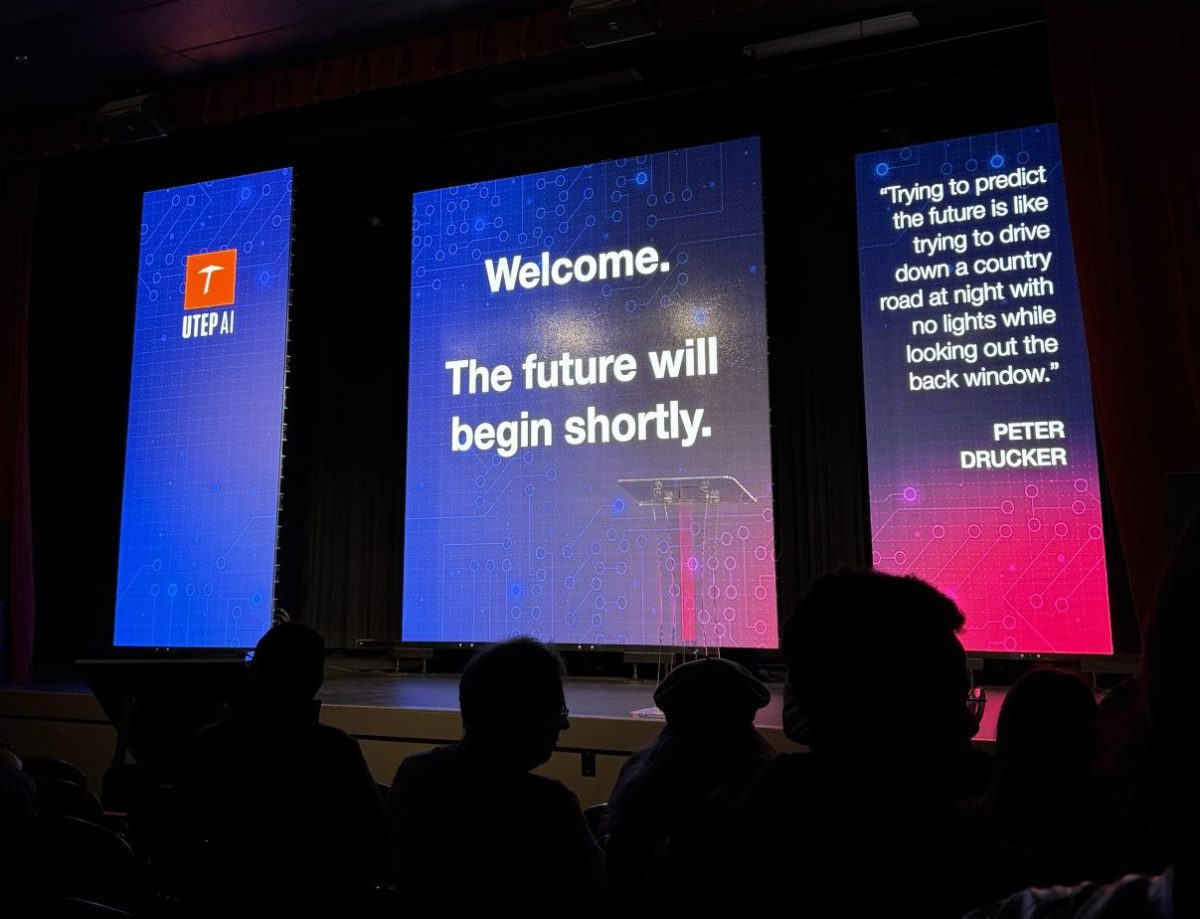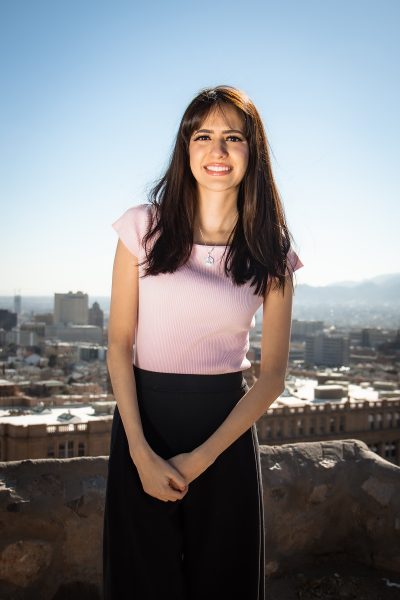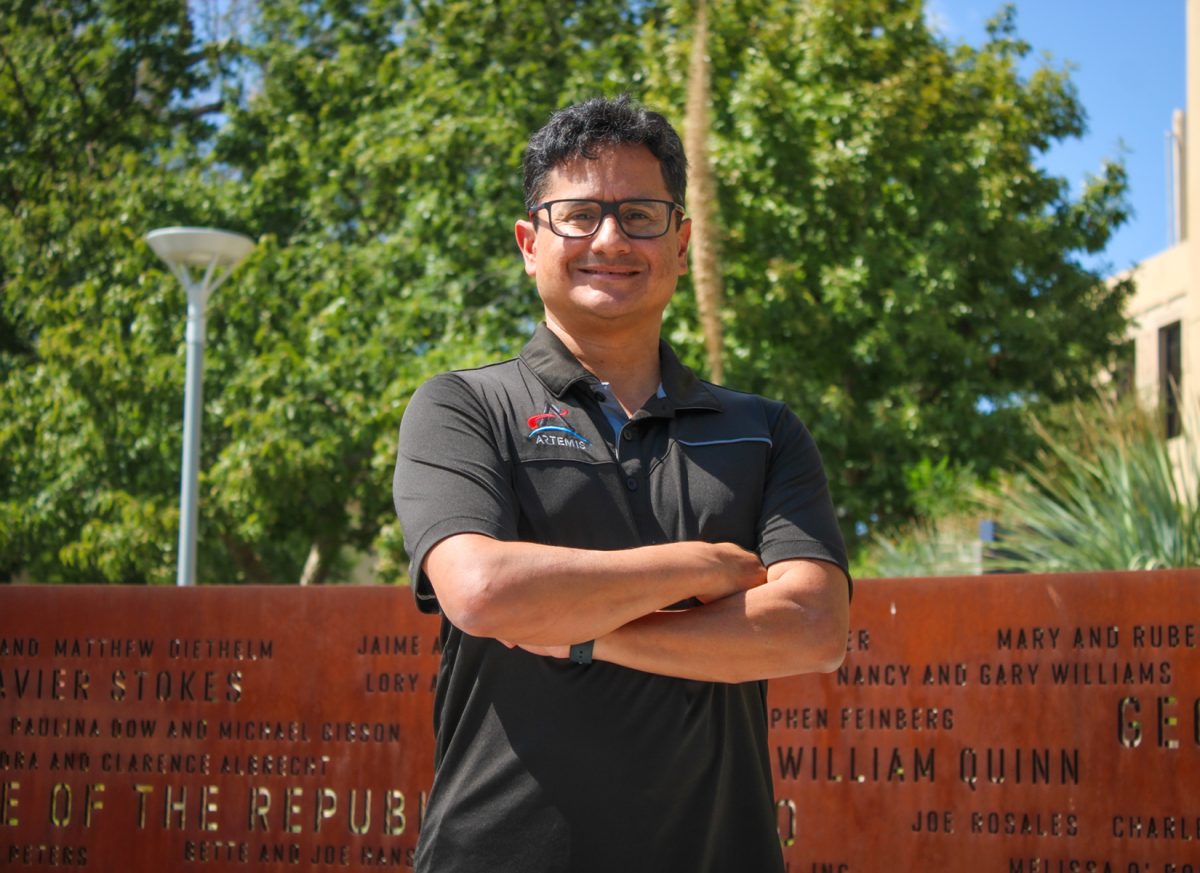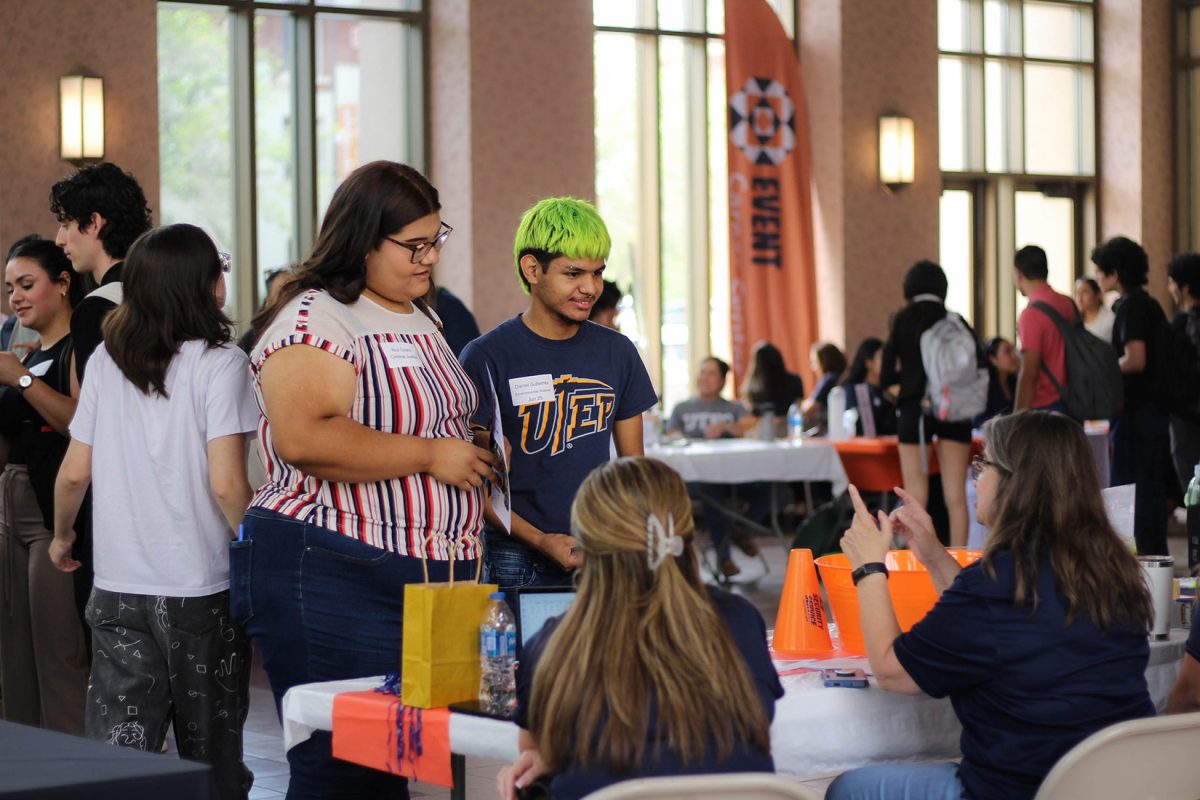A large bright screen displaying vibrant colors with an abstract technology design begins to illuminate the dark room filled with an audience taking one step closer to the commencement of a rapidly innovative future. On Dec. 10, 2024, The University of Texas at El Paso (UTEP) announced the launch of their newest degree plan specializing in artificial intelligence under the College of Engineering, offering options for both a master’s and bachelor’s concentration beginning spring of 2025.
Salamah Salamah, Ph.D., associate vice president for scientific computing and AI, states that the initiation of the artificial intelligence degree was in the talks since the summer of 2023, but started being planned out in the fall of 2024.
“The Computer Science department at UTEP has been doing artificial intelligence for a long time through our undergraduate program and graduate degree in computer science, software engineering, and all of that,” Salamah said. “But over the last two years, AI just became predominant in the news.”
UTEP is now one of a handful of universities in the nation to launch an AI degree plan and is one of the three Texas institutions to do so. Salamah says this degree plan equips students with skills such as machine learning, deep learning and data-driven decision making. However, both levels of study focus on developing algorithms and models that enable machines to learn, reason and make decisions, which is essential for hardwearing AI systems to combat challenges among industries.
“Two summers ago, we decided that this is something that we probably should formalize instead of just doing it as part of another degree,” Salamah said. “And go for a dedicated degree in artificial intelligence because it gives you more flexibility to do more things.”
Salamah explains that one challenge AI could help combat is the tracking of cyber criminals and their path to track and use your data for malicious reasons.
“We as humans are not good at processing large amounts of data,” Salamah said., “That’s what AI can do, everything that I’m doing on my computer is actually also being logged and being recorded, whether it’s a mouse click, a button click, and so on.”
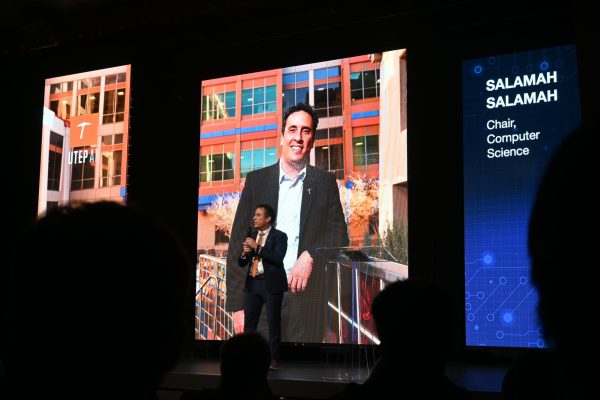
Bianca Alvarez, student engagement Ph.D. assistant in computer science, states the department also hopes to combine the AI degree plan with other areas of discipline to give students more opportunities for career growth.
“With artificial intelligence, students are able to combine it with other disciplines like in another area of engineering,” Alvarez said. “I think that’s very important because they have to know how to use technology and actively advance in their careers.”
As artificial intelligence continues to advance with new inventions that help write, create and innovate such as ChatGPT or Google Gemini, the future of artificial intelligence creates an open discussion of what is to be expected and what implications technological advancements could bring.
“Every semester we have companies looking for computer science students specifically,” Alvarez said. “They’re going to be able to recruit them to be software engineers, but also for their artificial intelligence role as a machine learning engineer, and students are going to be more prepared to apply for these roles for internships and then later on for a full-time opportunity.”
Mahmud Hossain, associate professor and interim chair of the computer science department predicts that he will see more advancements in the education system and more AI advancements and innovations in both the computer science and engineering field.
“I think at some point there will be a wide spread of technical disciplines like computer science and electrical engineering using educational creating curriculum.” Hossain said, “Then at some point, particularly all disciplines will have some AI related components more than computer science 30 years ago and more than computer science now.”
The future of AI has knocked on our doors much quicker than we thought, entering our lives through one simple touch or search, posing an uncertainty and curiosity of the true potential and capabilities that lie within our gadgets. However, one thing is certain, UTEP has entered a realm of innovations, mysteries and advancements that are yet to be discovered in the diverse world of technology.
Daniela Ordaz is a contributing writer for The Prospector and may be reached at [email protected].

